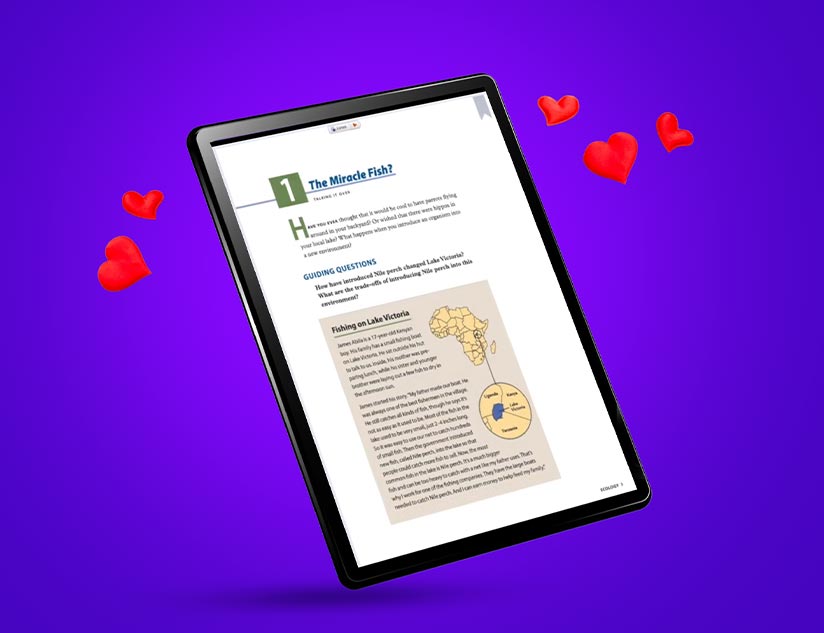“When we have all data online it will be great for humanity. It is a prerequisite to solving many problems that humankind faces.”
When Robert Cailliau, the genius co-creator of the World Wide Web, spoke these words three decades ago, he couldn’t have imagined the immense power of the internet to create an era of information explosion. Of course, he didn’t consider the advent of high-speed internet connectivity and powerful mobile devices, which would make information readily available at one’s fingertips. Neither did he consider that platforms like the internet relay chats (IRCs) of the 1980s-90s would be replaced by multi-billion-dollar companies like Facebook and Twitter.
By 2015, two and a half quintillion bytes of data was generated everyday across the globe, through social networks, wikis, blogs, emails and even traffic systems, with 90% of this data being created in just 2 years! By 2020, it is estimated that 1.7MB of data will be created every second, for every person on this planet. Such data generation, which is beyond the capacity of human processing power,is otherwise known as information explosion.
But, Isn’t Information Good for Us?
Internet cannot be entirely held responsible for this information explosion, but it certainly has accelerated the availability of information for us. There is no limit to how much content can be published online, and it is clearly our good fortune that we can access such a vast knowledge base, anytime, anywhere. Knowledge yes, but wisdom less frequently! When it comes to education, access to limitless information isn’t really a good thing. Students need to complete specific syllabi that will help them with school-based assessments. They need to be able to access only relevant information.
Being bombarded by so much information, it is difficult to make sense of it all, most of the times. For example, try searching for a cure for stomach-ache online and you will most certainly come across the word “Cancer” being mentioned as casually as a stomach upset. It is difficult to ascertain the emotional impact of such profound information.
Now, place this in the context of K-12 education. Imagine looking for information on Earth’s gravity only to be bombarded with everything from the apple falling on Newton’s head to Quantum Physics. Such unlimited access to information puts at significant risk young impressionable minds, especially those born in the 21st century, who have never known any other way to access information.
This tendency to source information online can be highly addictive too. In fact, the impact of internet browsing on academic performance has been a topic of research for quite some time now. According to a study by ResearchGate (published back in 2013), students spend more time on searching for non-academic information online, such as spending time on social media. Another problem comes in the form of non-credible sources of information that entail huge risks of information contamination. The proliferation of fake news in recent times is a key example of this. Can students assume that the information they access online is the definitive word on the subject matter they are researching?
Clearly, there is a mismatch between the demand for online information and the lack of tools that can help us filter trustworthy information. This is where the role of education publishers becomes increasingly important.
Challenges for Publishers in the Information Age
First of all, publishers face the challenge of not just keeping up with the most recent and relevant information, but also catering to the changing needs of the end-user. Today, the digital experience is valued, where students look for engaging delivery methods, personalized learning experiences, as well as feature-rich content platforms.
Another key challenge is that, just like the music industry, digital publishers face significant risk of piracy. Digital rights management and access to only authorized subscribers has become the need of the hour. This is the only way publishers can ensure that their content is monetized optimally.
Educational publishers today also need to address content format innovation. Simply converting text into eBooks or audiobooks doesn’t work anymore. Users today are looking for visual and audio rich, multimedia content that is interactive and engaging. Plus, they are looking at apps as the mode of delivery.
Revenue generation in this information age also remains a critical challenge. Rapid advancements in technology have changed the way information is produced and consumed. Consumers have greater access to information, thanks to high internet speeds and mobile communications. So, on the one hand, where consumers are accessing higher quality platforms, for the publishers, the risk of product obsolescence is always looming in the background.
To disseminate digital content faster, publishers are using third-party distribution platforms. But new research shows that these publishers generate much lower revenue when they place their content on external platforms. Publishers feel a lack of control on their efforts to monetize their content on these platforms. Then, there is the risk of copyright violations and content piracy.
This is where robust digital rights management tools can help. When a digital learning platform offers the ability to prevent unauthorized access, it allows educational publishers to ensure high levels of security, while also allowing them to better monetize their content.
This humongous task of providing high quality, credible information in various formats, while maintaining a steady revenue stream is challenging. This why, an integrated content delivery platform, like MagicBox™, could be the much needed solution.
How Education Publishers Can Overcome Such Challenges
What publishers need is a platform that can ingest variety of content such as scholarly journals, PDFs, question banks, tutorial videos, presentations and much more. This platform should offer high customizability to distribute branded content. Publishers should look for a platform that eases the entire process of creating, updating and distributing content, while ensuring effective digital rights management.
With MagicBox™, education publishers can not just reduce time to market by almost 80%, they can offer the end-user multi-device operability, across the most popular operating systems, while the in-built semantic capabilities of the learning experience platform make content easily discoverable and enhance user experience.
The way to remain relevant in the age of information explosion is for education publishers to be able to offer users not just the knowledge they want but the digital experience they seek.













